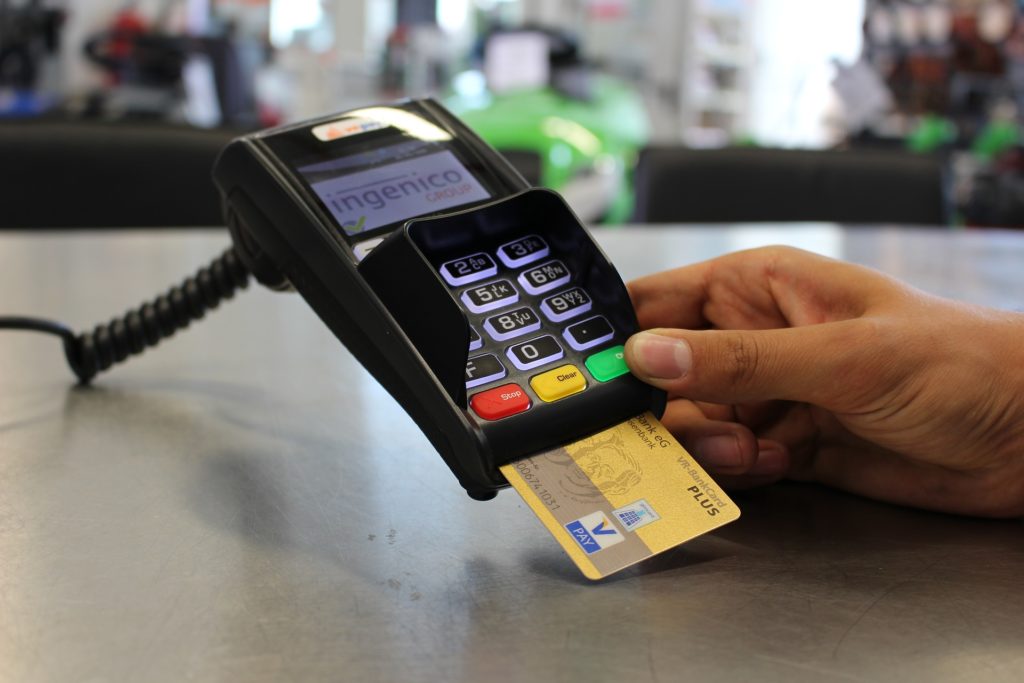
Recovering from an addiction is a humbling and hard process. Often almost all aspects of the addict's life has shifted since entering treatment and obtaining recovery.
Relationships, family dynamics, housing and employment are all areas that have potentially changed and need attention. Often times, after recovery individuals live with relatives until able to be independent again. This means depending on others to help become financially and physically independent again.
How Credit is Impacted by Addiction
Reviewing and rebuilding credit and finances is a good place to start when wanting to rebuild credit [5]. Credit can change or slip when in an active addiction. To be able to become more financially and physically independent it is important to obtain a copy of a current credit report.
There are various credit report agencies that this can be obtained from, and an individual is allowed one free copy from each existing credit agency. When reviewing a credit report, look at the credit score, or FICO, and any discrepancies in the report [1, 5].
FICO ratings are an estimate of credit value and range from 300-850. A healthy credit score is anything over 620 and anything below that is considered a poor credit score [2,5].
If there are noted errors in the credit report, correcting these can help reduce the total credit score. Errors can be a range from an incorrect name, or an unused address to a defaulted loan that was never owned [5].
Having a copy of the credit report will also give the individual a sound idea of how much is owed and to whom [1, 5]. It is possible, though, to negotiate with creditors if there are disputes or large amounts owed. Creditors are often able to spread payments out over a longer period of time if the individual is willing to work with the agency [1, 3].
Some credit agencies will allow smaller payments monthly, or write off a portion of the debt. Talking with the credit agency can give the individual an idea of what options are available to them [4,6].
The Benefit of a Budget
Another step in rebuilding credit is to make a budget or financial plan. This can include how much the individual is making through current or new employment, living expenses, outstanding debts, and any other needed expenses.
 Avoid using credit cards as means of paying for expenses if at all possible. Put money towards debt each month to reduce the debt amount [2]. When rebuilding credit it is also important to pay bills on time each month, which will increase your credit score over time [1, 6].
Avoid using credit cards as means of paying for expenses if at all possible. Put money towards debt each month to reduce the debt amount [2]. When rebuilding credit it is also important to pay bills on time each month, which will increase your credit score over time [1, 6].
Work on curtailing spending habits as well. Most individuals, once review spending habits find that there are several areas that spending can be eliminated or are unnecessary. Other individuals find that using a cash-only option for purchases if helpful to reduce unnecessary spending [5].
Payment history is a major factor in determining credit scores. To ensure a healthy credit, focus on bringing overdue accounts in arrears up to date, and keep current on payments. Typically there are counseling credit services and financial advisors that can assist with creating a plan to manage unpaid accounts.[4, 6].
Rebuilding your credit after an addiction will involve some creativity. If money is owed to credit card companies, individuals can look at personal home equity (if own a home) and can refinance the home to assist in paying some immediate debt [6]. Some individuals look at delaying payments in one or several debts until another one is paid off.
Dealing With Overwhelming Debt
If debt owed is too overwhelming , to large to pay off, or no agreements can be made, bankruptcy can be an option [6]. Bankruptcy can be costly legally, and can affect long term credit once granted.
Bankruptcy is a legal status for an individual who is unable to pay outstanding debt(s) [7]. Bankruptcy status can only be granted in a State or Federal court. Typically filing for bankruptcy is a last option for individuals with large loans or bills.
It can eliminate almost 100% of debt, but there are long-term consequences to filing bankruptcy. Bankruptcy can negatively affect credit, or future ability to use and access money.
It can prevent or delay foreclosures on a home or car and can interrupt wage garnishment (for those who have support payments, etc) and other legal financial matters. Bankruptcy is a costly and long process, and talking with a financial advisor or researching all of the options seriously to bankruptcy is highly recommended.
When working on rebuilding credit it is important to remember to address any urgent repayment loans or overdue fees, such as mortgage, utilities, or rent. Assess the types of debt owed and create a list of the most urgent to ones that can wait to know where to start putting resources.
Contact creditors to negotiate, forbeare, or write off portions of debt incurred [6]. Review income and expense needs to budget for monthly essentials and review any State or local community resources that can offer basic need assistance. Monitor credit scores as correcting debt will eventually improve rates. Be patient with the process and know that rebuilding credit takes time and consistency.
Finally working on developing an emergency financial fund is an investment that is worthwhile to look into. If working with a financial advisor, the individual can set up an emergency fund that can help offset periods of unemployment, up to 6 months ideally.
 Look at all payments, costs of living and triple that monthly total. This sum will give you the amount of money needed to cover several months of living and repayments if unemployment does occur [6]. Small monthly deposits can be made into an emergency fund to build up the necessary amount.
Look at all payments, costs of living and triple that monthly total. This sum will give you the amount of money needed to cover several months of living and repayments if unemployment does occur [6]. Small monthly deposits can be made into an emergency fund to build up the necessary amount.
Rebuilding your credit after recovering from addiction means looking ahead to the future. It means that individuals are responsible for owning the addiction and debt and setting goals for a future in recovery. Stay positive in goals, and keep to the financial and recovery plan to obtain your goals.
 About the Author: Libby Lyons, MSW, LCSW, CEDS, is a Certified Eating Disorder Specialist (CEDS) who works with individuals and families in the area of eating disorders. Mrs. Lyons works in the metropolitan St. Louis area and has been practicing in the field for 11 years. Libby is also trained in Family Based Therapy (FBT) to work with children-young adults to treat eating disorders. Mrs. Lyons has prior experience working with the United States Air Force, Saint Louis University, Operating Officer of a Private Practice, and currently works with both Saint Louis Behavioral Medicine Institute within their Eating Disorders Program and Fontbonne University
About the Author: Libby Lyons, MSW, LCSW, CEDS, is a Certified Eating Disorder Specialist (CEDS) who works with individuals and families in the area of eating disorders. Mrs. Lyons works in the metropolitan St. Louis area and has been practicing in the field for 11 years. Libby is also trained in Family Based Therapy (FBT) to work with children-young adults to treat eating disorders. Mrs. Lyons has prior experience working with the United States Air Force, Saint Louis University, Operating Officer of a Private Practice, and currently works with both Saint Louis Behavioral Medicine Institute within their Eating Disorders Program and Fontbonne University
References:
[1] http://casanuevovida.com/5-tips-to-restore-your-credit-score-after-addiction-recovery/
[2] http://www.recovery.org/forums/discussion/1235/recovering-financially-after-a-gambling-addiction-where-to-start
[3] http://renaissanceranch.net/addiction/finances-after-addiction/
[4] http://blogs.psychcentral.com/sober-life/2016/11/how-to-rebuild-financially-in-recovery/
[5] http://www.drugaddictiontreatment.com/drug-addiction-treatments/addiction-recovery/recovering-addict-build-rebuild-credit/
[6] http://www.drugrehab.org/recovery-solutions-fixing-financial-problems-from-active-addiction/
[7] https://www.debt.org/bankruptcy/
The opinions and views of our guest contributors are shared to provide a broad perspective of addictions. These are not necessarily the views of Addiction Hope, but an effort to offer discussion of various issues by different concerned individuals.
We at Addiction Hope understand that addictions result from a combination of environmental and genetic factors. If you or a loved one are suffering from an addiction, please know that there is hope for you, and seek immediate professional help.
Reviewed By: Jacquelyn Ekern, MS, LPC on March 4, 2017.
Published on AddictionHope.com
